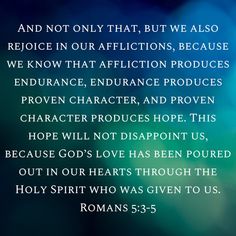The rate at which new cases of Pastors caught in sexual immoralities spring up is nothing but alarming. It is so alarming that to give examples is needless. The preponderance of such aberrations should be of great concern to everyone who names the name of Christ. Paul once rebuked the Jews that the name of God is blasphemed among the gentiles because of them (Romans 2:24). I believe in many ways, that rebuke is very much applicable to the church today and one manifestation of that is the rise of moral failings in the pulpit.
We could say many things about the whole phenomenon. However, in this article, I want to narrow my focus on some issues that I believe are foundational. My aim is not to share some personal tips on sanctification with pastors. Rather, I want to look at some dynamics in the way we organize the church today that make it easier for these kinds of moral falls to happen in the pulpit.
“Ordain Elders:” New Testament Leadership
One of the things we need to do is go back to the New Testament and seek to understand the way church leadership worked in the early church. In the Jerusalem Church, we had the apostles leading the church together with a body of men called the elders. (Acts 11:30; 15:6) The church in Ephesus was under the authority of Elders (Acts 20:17). Paul instructed Titus to appoint elders in all the towns of Crete. Peter when writing to the elect of God scattered across various cities, made an appeal to the elders in those cities (1 Peter 5:1). James also appealed to the twelve tribes scattered abroad to call the elders of the church to pray over the sick.
The elders are the shepherds of the flocks (1 Peter 5:2, Acts 20:28). They are overseers. (1 Peter 5:2 Acts 20:28). They are the ones to direct the affairs of the church (1 Timothy 5:17) and a huge part of that is the preaching and teaching of the word of God. (1 Timothy 3:2 Acts 20:28).
The leadership of the churches in the New Testament was not under a single person who has absolute authority over the affairs of the church. Rather, when the apostles and evangelists founded a church, they appointed a group of men to lead, oversee, and direct the affairs of the church. In 1 Timothy 5:17-19, Paul talked about the elders who are worthy of double honor. The elders who rule well the affairs of the church are worthy of double honor especially those who labor in teaching and preaching. This opens up the possibility that while all the elders direct the affairs of the church and the elders are to be apt to teach (1 Timothy 3:2), there were some who were charged with the actual preaching and teaching of the church.
The leadership of the churches in the New Testament was not under a single person who has absolute authority over the affairs of the church. Rather, when the apostles and evangelists founded a church, they appointed a group of men to lead,… Share on XElders, overseers, bishops, and shepherds (pastors) are used interchangeably in the above verses. This means that in the New Testament, a pastor is an elder and an elder is a pastor. A bishop is a pastor and a pastor is a bishop.
What exactly is the point you may ask? Well, here it is: the New Testament does not know of a church setting where a single man has absolute or exclusive authority over the church. The church is under the leadership of elders. While the present-day Pastor may be the preaching and teaching elder (worthy of double honor), he does not have absolute or independent power.
The New Testament does not know of a church setting where a single man has absolute or exclusive authority over the church. The church is under the leadership of elders. While the present-day Pastor may be the preaching and teaching elder… Share on XHow does this even relate to the topic at hand? The people who founded the United States and wrote its constitution understood what the bible teaches about the depravity of man. They understood the nature of human sinfulness enough to know that power cannot be concentrated in an individual. Instead, there is a need for accountability and separation of powers. Power still corrupts and absolute power still corrupts absolutely.
When someone has absolute power, the problem is not only what he does to others but also what he ends up doing to himself. I believe there is a close connection between allowing pastors to have absolute authority over the church without accountability to a body of elders (to which he belongs) and the current preponderance of moral failings. When I feel I can do whatever I like without accountability, it will not be long before I start wallowing in sin. It is human nature.
When someone has absolute power, the problem is not only what he does to others but also what he ends up doing to himself. I believe there is a close connection between allowing pastors to have absolute authority over the church without… Share on XMy point in all of these is that if the body of Christ today will alleviate the current situation in the pulpit, we will need to return back to understanding the importance of having a body of elders and the fact that the pastor is an elder among many (albeit the preaching and teaching elder). Paul reminds us that those who labor in preaching and teaching in addition to the ruling of the church are worthy of double honor (which in the context means financial support – verses 18-20). Double honor they must have but absolute authority they must not. Such unbounded freedom and liberty over the flock of God is dangerous to the pulpit and the pew.

“If any man:” Conditions for Becoming an Elder
Another problem with the modern church is the relative ease with which people become elders (what we call pastors). We see a young boy who can teach and who is passionate about the things of God and we send him to the seminary. Immediately he graduates, we make him a pastor straightaway. A man wakes up one day and claims to have a call from God and he starts a church and becomes a pastor.
Becoming a pastor is now all about getting a degree from a seminary or receiving some private “call” from God. No wonder we are in this current mess. We live in an age where we tend to spiritualize everything and end up shooting ourselves in the legs.
Becoming a pastor is now all about getting a degree from a seminary or receiving some private “call” from God. No wonder we are in this current mess. We live in an age where we tend to spiritualize everything and end up shooting ourselves in the… Share on XThe point? The New Testament has qualifications that a man (a man alone) must meet to be an elder/bishop/presbyter/overseer/pastor in the church. The expanded list is in 1 Timothy 3 and Titus 1. Let me just list them out:
- Be above reproach
- The husband of one wife (not the wife of one husband)
- Temperate
- Self-controlled
- Respectable
- Hospitable
- Able to teach
- Not given to drunkenness
- Not violent but gentle
- Not quarrelsome
- Not a lover of money
- He must manage his own family well and see that his children obey and respect him
- He must not be a recent convert
- Good reputation with the outsiders
This is the list from 1 Timothy. I do not think anyone can read that list and not shudder. The position of an elder/pastor is not one that the bible takes with levity. There are ravaging wolves all around and Christ wants to place leaders over his folks who can feed and protect them.
We must take every single item on this list with grave seriousness. It does not matter if you think you are hearing voices in your heads calling you to ministry. It does not matter if you are a graduate of the seminary. If you are wanting, you cannot be a Pastor/elder/bishop.
Who is to assess then? The clue we have in the New Testament is that the person who founded the church took on the responsibility to appoint elders (Acts 14:23, Titus 1:5). Elders do not appoint themselves. The apostles and their evangelistic fellow-workers appointed elders. We do not have the apostles of Christ today (despite the fact that many call themselves apostles) but if we do missions right (where missionaries are connected to an already established church), then the missionaries in connection with the church or the mission board appoint elders in the new churches. If a denomination opens up another church, then it is the duty of the leaders of the denomination to appoint elders in accord with biblical requirements.
The members of the church are not passive in all of these. No one can be a better judge of some of the requirements in that list apart from the church members.
The long and short here is that we need to pay more attention to these biblical requirements. If we do, we will have less unqualified people in the pulpit and we will bring less reproach to the cause of Christ. Since only God can judge the heart, we cannot be perfect in this regard. Nevertheless, we must take responsibility and do the best we can. Will this solve all the problems? Not at all. However, it will be a good step in the right direction.

“He must be above reproach:” The Place of Discipline
When you have a church where a single pastor rules rather than a body of qualified elders, it is almost impossible (except there is a denominational structure) to discipline the pastor for his moral sins. In fact, a pastor can sin today and still preach in the pulpit two weeks from now.
However, if we are paying attention to the biblical requirements that an elder must be above reproach, he cannot just mount the pulpit as if nothing happened. When a member of the Corinthian church committed sexual sin, Paul instructed the church to excommunicate him. If a member of the church should be on church discipline because of sexual sin, a Pastor is not exempted.
Excommunication does not mean the Pastor cannot return to the church. If he genuinely repents of his sin, he can go through a process of restoration to church membership. However, restoring such a pastor to the leadership of the church is another matter. If we take the first and last requirement in 1 Timothy 3 seriously, I don’t think we can make a good case for restoring such a man to the leadership of the church.

“Rejoice in Trials:” Suffering is part of the Christian Life
We have bred a generation of fair weather Christians who don’t seem to understand that Christians are not immune to the difficulties and trials of life. If anything, we are more susceptible to them (because of God’s discipline one hand and the hatred from the world on the other). Paul admonished the Thessalonians not to be moved by their afflictions because “we are destined for this” (1 Thessalonians 3:3). One of the glories of the gospel is that we glory in our tribulations (Romans 5:3). Paul and Barnabas encouraged the disciples in Antioch that it is “through many persecutions” that we enter the Kingdom of God. (Acts 14:22). Christ himself reminded us that in this world we will have tribulations (John 16:33) and Peter instructed us not to think it strange when we suffer (1 Peter 4:12). What should be our attitude to these trials? First, we must recognize the sovereignty of God in all our trials (Hebrews 12:5-8, Philippians 1:29). Second, we must see beyond our trials to the good work God is doing through them (Romans 5:3, James 1:2). Third, we must rejoice in our trials because of the hope we have in Christ. (Romans 5:3, 2 Corinthians 4:16-18, John 16:33, 1 Peter 4:13).
In contrast to this biblical teaching, many believers today live with anxiety when they are in difficulties. Before any difficult situation of life arises, they are already seeking out pastors and so-called prophets for deliverance. We run helter-skelter looking for miracles and the removal of every difficulty. As a result, there is a growing dependence on Pastors to pray away our difficulties or to give us some magical materials that will solve our problems.
This has led to idolatry on our part and many pastors have been willing to be made the golden calf. Instead of teaching us to suffer well as believers, to submit to God’s providential dealings, and pray as Jesus did in Gethsemane (submitting to God’s will); many pastors have been willing to serve in the role of magicians.
There is a growing dependence on Pastors to pray away our difficulties or to give us some magical materials that will solve our problems. This has led to idolatry on our part and many pastors have been willing to be made the golden calf. Share on XThe idolatry that goes on in this relationship is one of the cause of the unholy intimacy that have brought down many pastors. Most pastors do not fall into moral sins because they are teaching the attributes of God to their flock every Sunday morning. They often do because a member has idolized them to the point where they are the magicians who can solve all of her problems. In the idolatry that results from that mindset, all forms of sexual immorality cannot be far away.
Most pastors do not fall into moral sins because they are teaching the attributes of God to their flock every Sunday morning. They often do because a member has idolized them to the point where they are the magicians who can solve all of her… Share on XI am not saying that it is wrong to carry your pastor along when you face difficulties, but what I see in many cases is idolatry that results from our inability to suffer well as believers and to embrace the biblical teaching about the priesthood of all believers. Let me explain what I mean by the latter. If you understand that the other woman that sits beside you in the pew and lives close to your home is as much a child of God as the pastor, you will be sharing your troubles with her as a fellow believer rather than sharing deep emotional burdens with the pastor. If you know that your Christian husband is also a child of God, you will be willing to share your burdens with him rather than live your life in constant dependence on the pastor.
When we understand the priesthood of believers and embrace the call to suffer as believers, there will be less idolizing of pastors and when the root is gone, the fruits will be gone.

Conclusion
Many more things could be said. However, because this is a big issue and for the sake of brevity, I need to conclude.
It will be childish and unbiblical to believe that every pastor who falls is a fake Christian. True Christians sin but they do not live in sin. They serve righteousness, not sin. However, while the pastor is responsible for his sins, there is a sense in which the church also contributes to the sin. When we have churches without a body of elders but under the control of a single man and we ignore the requirements of the scriptures for eldership, we set our pastors up for moral falls. When we forget biblical teachings on sufferings and the priesthood of all believers, we set our pastors up for moral falls.
I do not say this to minimize the responsibility of the man in question but to help us understand what we can do as the body of Christ to minimize such occurrences.
May God help us. Amen
PS: In an article of this nature, there will be some loose points here and then – some points I could not develop or consider the nuances. If you notice anyone, let us continue the conversation in the comments or send a message through the contact page.



